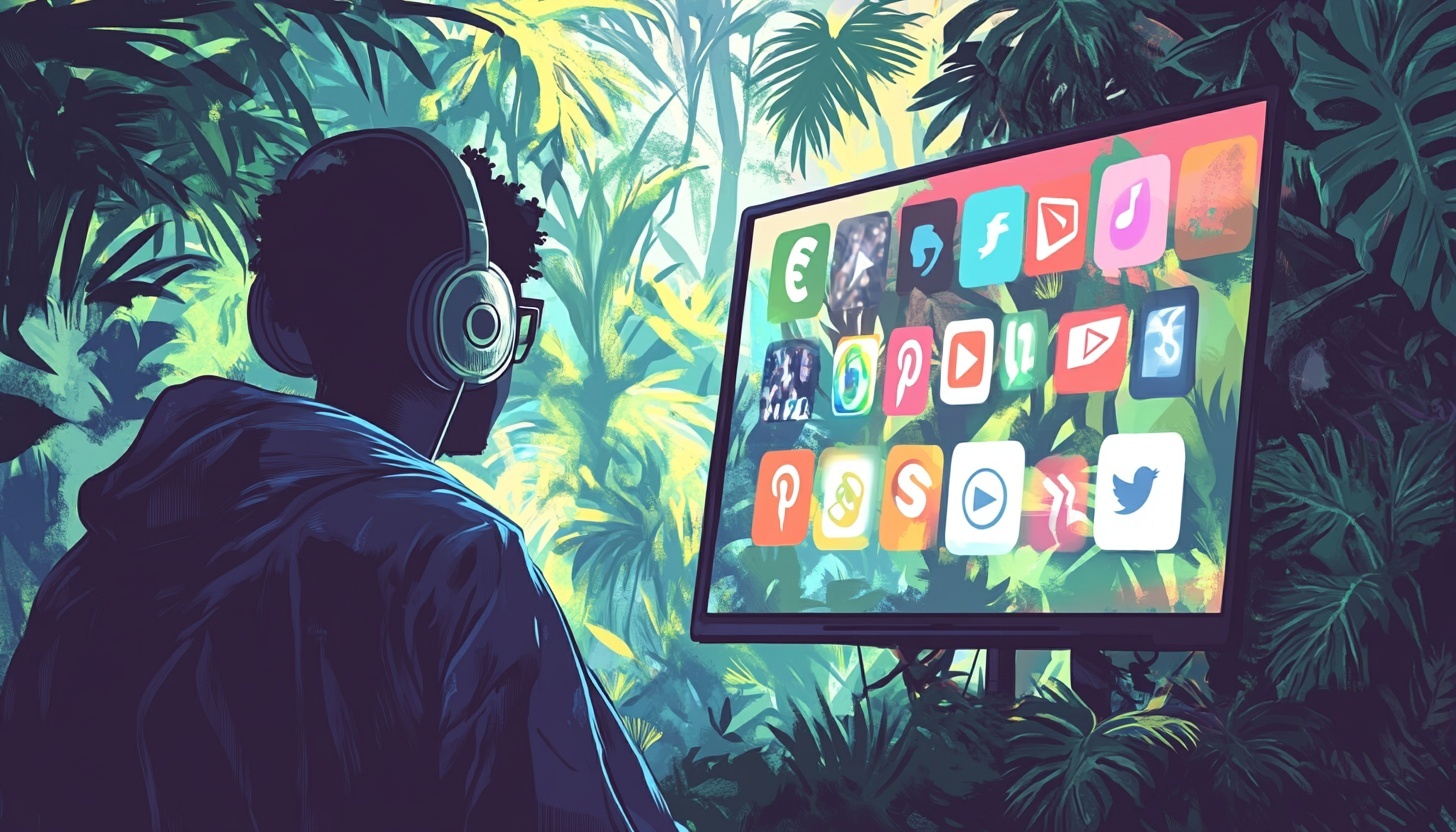The Art of Storytelling in B2B Podcasts: Building Trust and Authority in Your Industry
I. Introduction
The importance of storytelling in B2B podcasting
Storytelling has always played a crucial role in human communication. In the context of B2B podcasting, it helps convey information and ideas in an engaging, memorable, and relatable way. Effective storytelling can turn a bland podcast into an immersive listening experience that resonates with your audience.
Overview of the blog post's purpose and structure
In this blog post, we will explore the importance of storytelling in B2B podcasting and its potential to connect with listeners, build trust and credibility, and differentiate your brand from competitors. We will discuss key elements of successful storytelling, as well as best practices and tips to enhance your B2B podcast storytelling skills.
II. The power of storytelling for B2B audiences
Connecting with listeners on a deeper level
B2B storytelling has the power to connect with listeners on an emotional level, fostering a sense of empathy and understanding. By sharing relatable stories, you can create a sense of connection and community among your audience, making them more likely to engage with your content and remember your brand.
Building trust and credibility with your audience
Sharing authentic stories that showcase your expertise and insights can help to establish you as a trusted authority in your industry. When listeners can relate to your experiences and learn from the challenges you've faced, they are more likely to trust your advice and recommendations, ultimately leading to a stronger relationship with your audience.
Humanizing your brand and differentiating it from competitors
In a competitive B2B landscape, storytelling can set your brand apart by humanizing it and showcasing the people and values behind the products and services you offer. By creating a distinct narrative voice and sharing engaging stories, you can differentiate your podcast from competitors and create a unique listening experience that your audience will come back to time and time again.
III. Identifying compelling stories for your B2B podcast
Analyzing your industry for captivating narratives
To find captivating stories, take a deep dive into your industry's trends, news, and events. Look for stories that demonstrate the impact of industry changes, showcase successful collaborations, or highlight the transformation of businesses through innovative practices. These narratives will pique the interest of your audience and provide valuable insights.
Sharing customer success stories and case studies
Customer success stories and case studies are powerful storytelling tools in B2B podcasting. They provide real-world examples of how your products or services have helped other businesses overcome challenges and achieve their goals. Sharing these stories allows your audience to see the tangible benefits of your offerings and creates a sense of trust and credibility.
Highlighting unique challenges and innovative solutions
Discussing the unique challenges faced by businesses in your industry, and the innovative solutions they have implemented, can be a compelling storytelling angle. These stories showcase your knowledge of the industry landscape and help demonstrate how your business can provide value to your listeners.
IV. Developing a storytelling structure for your podcast episodes
Creating an engaging narrative arc
An effective narrative arc captures your listeners' attention, sustains their interest throughout the episode, and leaves them with a memorable takeaway. Begin with a strong introduction, develop the story by sharing insights and experiences, and conclude with a powerful resolution that reinforces the episode's key message.
Balancing education, entertainment, and inspiration
A successful B2B podcast strikes a balance between educating, entertaining, and inspiring its listeners. While providing valuable information is essential, incorporating elements of humor, emotion, and storytelling can keep your audience engaged and make your content more memorable.
Ensuring clarity and consistency in your storytelling
To create a clear and consistent storytelling experience, make sure your podcast episodes follow a well-defined structure and maintain a consistent tone and style. This will help your audience better understand and follow your narratives, enhancing their overall listening experience.
V. Storytelling techniques for B2B podcasters
Using conversational tone and language
A conversational tone and language help create a more personal connection with your audience, making your stories more relatable and engaging. Speak naturally, as if you're having a conversation with a friend or colleague. This approach makes your podcast feel more authentic and allows listeners to easily grasp the information you're sharing.
Incorporating vivid descriptions and anecdotes
Vivid descriptions and anecdotes bring your stories to life, painting a mental picture that captures your audience's imagination. Use descriptive language and share personal experiences or relatable examples to create a more immersive listening experience.
Utilizing sound design and music to enhance the storytelling experience
Sound design and music can play a significant role in elevating your podcast's storytelling. Background music, sound effects, and well-timed pauses can set the mood, create suspense, and emphasize key moments in your narrative. Use these elements strategically to keep your listeners engaged and emotionally connected to your stories.
VI. Building authority through expert interviews and guest storytelling
Inviting industry leaders and influencers to share their stories
By inviting industry leaders and influencers to share their stories, you not only provide your listeners with valuable insights but also position your podcast as a trusted source of information. These guests can offer unique perspectives and firsthand experiences that help illustrate key concepts and enrich your storytelling.
Incorporating diverse perspectives and experiences
Diverse perspectives and experiences bring depth and nuance to your podcast. Encourage your guests to share their individual stories, successes, and challenges. This approach demonstrates your commitment to providing a comprehensive understanding of your industry and fosters a sense of inclusivity within your podcast community.
Fostering engaging conversations with your guests
An engaging conversation is the cornerstone of a successful podcast episode. Prepare thought-provoking questions and actively listen to your guests' responses. Encourage open, honest dialogue, and allow for natural, unscripted moments. These candid conversations not only create compelling stories but also strengthen your podcast's credibility and authenticity.
VII. Measuring the impact of storytelling on your B2B podcast success
Tracking audience engagement and listener feedback
Monitor key metrics such as downloads, listens, and subscription growth to gauge the impact of your storytelling approach on audience engagement. Additionally, pay close attention to listener feedback through comments, reviews, and social media interactions. These insights can help you understand what resonates with your audience and refine your storytelling techniques accordingly.
Assessing the influence of storytelling on brand trust and authority
Evaluate how storytelling affects your brand's reputation and authority in your industry. Monitor brand mentions, backlinks, and press coverage, as well as qualitative feedback from industry peers and partners. This data will help you understand the extent to which your storytelling approach contributes to building trust and credibility within your target market.
Continuously refining your storytelling approach based on results
Regularly analyze the results of your storytelling efforts and make data-driven adjustments to your podcast strategy. Continuously test new storytelling techniques, iterate on successful ones, and retire those that do not yield the desired results. This process of constant improvement will ensure your podcast remains relevant and engaging to your target audience.
VIII. Conclusion
Emphasizing the art of storytelling in B2B podcasts as a powerful tool
Effective storytelling in B2B podcasts can create stronger connections with your audience, build trust and credibility, and differentiate your brand from competitors. By mastering the art of storytelling, B2B podcasters can unlock the full potential of their content and drive meaningful results.
Encouraging B2B podcasters to invest in developing their storytelling skills
Investing time and effort in developing your storytelling skills can significantly improve your podcast's effectiveness in engaging your audience and building your brand's authority. Embrace continuous learning and growth, and don't be afraid to experiment with new storytelling techniques.
Highlighting the potential for increased trust, authority, and audience engagement through compelling storytelling
By leveraging the power of storytelling, B2B podcasters can create more engaging, impactful content that resonates with their audience. In turn, this approach can lead to increased trust, authority, and overall success in the competitive world of B2B marketing.
Start Repurposing Media with Castmagic
Paste a link from:









Place a link to 1 media file below and get 100+ content assets instantly.
Castmagic transforms your audio and video into blogs, social posts, newsletters, show notes, and more.
Start Repurposing Your Media

Click or drag your audio/video file here
One upload. Generate endless content.
1. Upload Media File: Drag and drop your audio or video file.
2. Get Instant Transcript: 99% accurate, perfectly formatted, speaker-labeled transcripts in 60+ languages.
3. Generate Content: Create publish-ready blogs, social posts, newsletters, and more with AI.

Automate Your Content Workflow with AI








.png)

